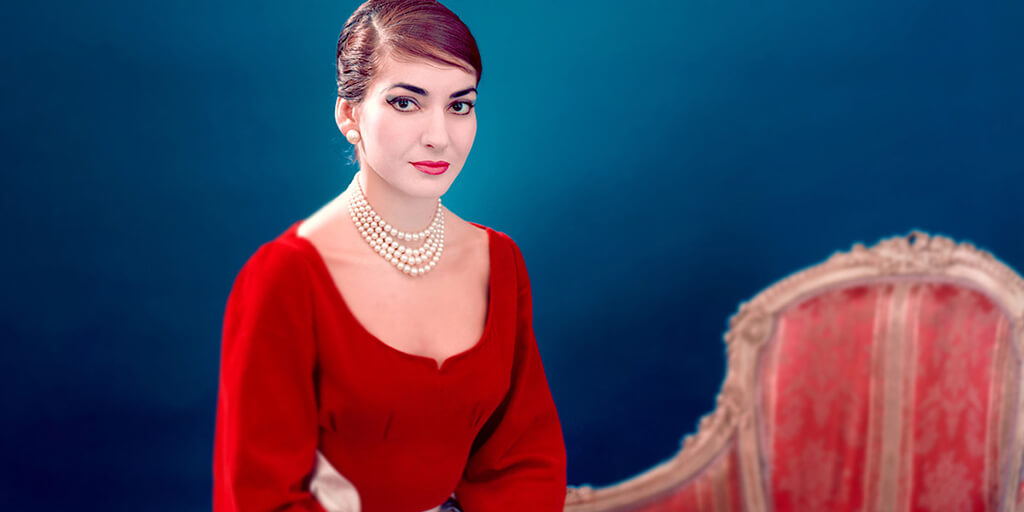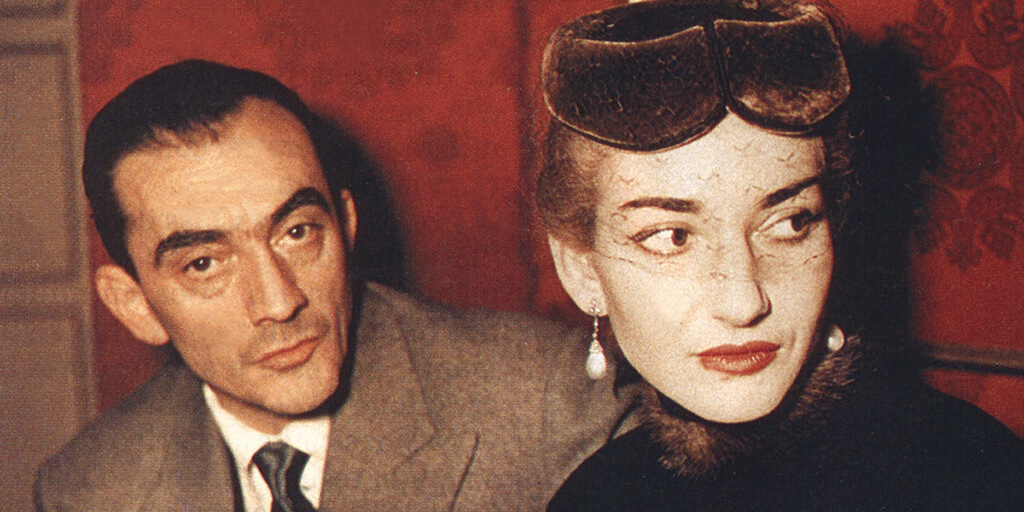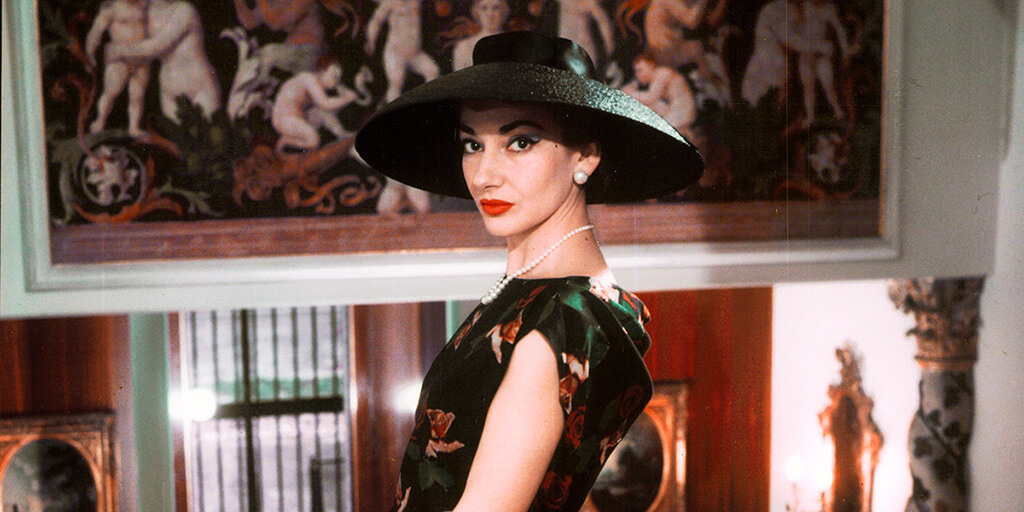There are two people in me. I would like to be Maria, but there is the Callas that I have to live up to.
There was Maria, and there was Callas. Maria was the private woman, known only to a small circle of friends. The poised perfection that was Callas was the persona she gifted to her fans and the rest of the world. A fascinating portrait of both emerges in the new documentary Maria by Callas by French filmmaker Tom Volf which received its North American premiere at the Toronto International Film Festival in 2018.
Just five years ago, Volf wasn’t a fan of Callas, or opera, and confesses a virtual ignorance of the whole realm of classical music. That changed one fateful night in New York City. “Out of the blue,” he describes it.
The young actor, director, and photographer was living in NYC in a shared apartment, and just happened to stroll by the Met one evening. He bought tickets to an opera on a whim, and it literally changed his life.

“It was such an amazing experience,” he recalls. “I remember that night vividly.” Soprano Joyce DiDonato was singing the lead role in Donizetti’s Maria Stuarda, and for Volf, the combination of music, theatrical and cinematic elements was transformative. After the performance, he rushed home to scour the internet for more information, and before too long, came upon the life and art of Maria Callas. “It was the second big revelation,” he says.
It naturally piqued his filmmaker’s instincts. He turned his talents to piecing together a portrait of the woman as an artist, and it began with some detective work. “I started the journey of making the film by looking for the people close to her.” The next step was gaining their trust enough to allow him to use their private communications for his documentary.
The approach paid off. The movie features never before heard letters, films, photographs and other documents that allow Maria — and Callas — to tell the story in their own words, including footage from a long lost 1970 interview with David Frost. When much has already been written and discussed about the legendary soprano, Maria by Callas offers fresh insights into the woman who was often labelled a diva by the press. Concert footage adds the artist Callas at her finest, illustrating the vocal and dramatic talents of a true legend.

At her very essence, she was a consummate artist, a perfectionist who devoted her whole life to her art, and sacrificed any dreams she had for a quiet family life. The push to perfection began early with a mother who had visions of Shirley Temple style success. Maria took to the discipline of training naturally, remembered by her teachers as the student who arrived first and left last at the Athens Conservatoire.
That work ethic persisted throughout her life, resulting in the extraordinary performances and recordings that still enthrall opera lovers. “Her level of standards are so high,” Volf says, “it’s very hard to live by that. It was one of the things that differentiated her.”
But, as the movie shows, perfection doesn’t come cheap. When she cancelled a performance because she was ill and her voice was not up to her standards, she was pilloried in the press around the world. The experience hurt her deeply. “It was the ideal way to drag me through the mud,” she says ruefully in an interview. “There’s always some enemy waiting for a moment of weakness.”
Naturally, the movie also looks at her much-publicized affair with Aristotle Onassis — both before and after his marriage to Jackie Kennedy. The two met while they were both still married to others, and the film also sheds light on the reasons for her divorce — or rather, her eventual divorce. There was no legal divorce laws at the time, and she spent more than a decade living as officially separated from her husband. Once she’d finally been granted a divorce, it was right about the time she learned of Ari’s marriage to Jackie by reading about it in the newspapers.

Still, it was with Ari that Maria found at least some happiness in her life. “He made me feel liberated,” she said. In the end, married to Jackie O or not, she took him back into her life with a pragmatic sense of reality. “My affair with Onassis was a failure, but my friendship with him, a success,” she said.
Maria Callas passed away from a heart attack alone in her Paris apartment in September 1977, long before Volf was born, but still lives in the public imagination, and in her legacy. “I think she gave birth to a whole generation of singers,” he says.
Volf includes Joyce DiDonato, the artist he heard that night of his introduction to opera, and who also narrates Maria’s letters in the film, in that group. “To me, Joyce is one of them,” he says. “I may never have fallen in love with opera if it wasn’t for her.”
World class talent comes at a very high price. In the end, it was Maria who paid for all of Callas’ success, in her private life, even to her physical and emotional health. “You realize the level of sacrifice she had to make.” But, she was fatalistic. “But, destiny is destiny,” she told Frost, “and there’s no way out.”
For the rest of us, there is her undying legacy. And, in the end, the most enduring, and most certainly requited, love of her life was between Callas and her many legions of fans.
“She just was the greatest voice of her century. We’re lucky to have that heritage.”
- THE SCOOP | Not-For-Profit Euterpe: Music Is The Key Received Three-Year Grow Grant - April 24, 2024
- THE SCOOP | Flutist Arin Sarkissian & Percussionist Andrew Busch Make History With 2024 Michael Measures Prize Wins - April 24, 2024
- PREVIEW | The Works Of Barbara Strozzi & Maddalena Casulana Come Under The Spotlight In Apocryphonia’s Next Concert - April 23, 2024



